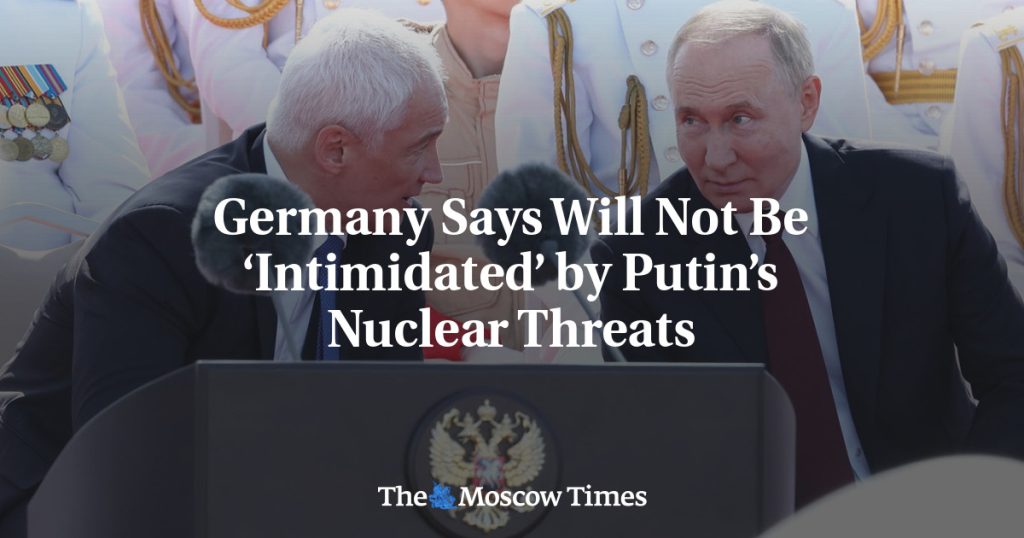Germany has declared that it remains unfazed by Russian President Vladimir Putin’s threats to restart the production of intermediate-range nuclear weapons if the United States moves forward with plans to deploy missiles to Europe. In response to Putin’s statements, a German foreign ministry spokesman emphasized that the country will not be intimidated by such remarks, indicating a firm stance against the Russian threats. The US and Germany had previously announced plans for the episodic deployments of long-range US missiles, including Tomahawk cruise missiles, to Germany starting in 2026, prompting Putin’s warnings of retaliation.
During a naval parade in St. Petersburg, Putin explicitly stated that Russia would resume the production of intermediate-range nuclear weapons and consider itself freed from previous restrictions on deploying such weapons. He declared that Russia is in the final stages of developing advanced systems, which will be deployed in response to US actions and those of its European allies. The potential deployment of these missiles in the range of 500 to 5,500 kilometers has raised concerns due to the historical arms control treaty signed by the US and the Soviet Union in 1987, which established limitations on the use of such nuclear weapons. However, the withdrawal of both countries from the Intermediate-Range Nuclear Forces Treaty in 2019 has further complicated the situation.
In light of the escalating tensions, both the United States and Russia have accused each other of treaty violations, leading to the breakdown of the previous agreements on arms control. Amidst this context of animosity and mutual mistrust, the threat of resuming the production of intermediate-range nuclear weapons represents a significant escalation in the geopolitical landscape, particularly concerning the security of Europe. Germany’s response to the Russian threats indicates a commitment to enhancing deterrence measures to protect itself and its allies against potential aggression, signaling a readiness to counter any threats posed by the deployment of such weapons.
The developments following Putin’s warnings suggest a growing geopolitical rivalry between major powers, with Germany being caught in the crossfire of these escalating tensions. The prospect of intermediate-range nuclear weapons being once again utilized raises serious concerns over the stability and security of the region, particularly in light of recent military buildups and strategic maneuvers by both Russia and the United States. The possibility of a renewed arms race, coupled with the breakdown of existing arms control agreements, underscores the urgent need for diplomatic solutions to prevent further escalation and reduce the risks of potential conflict.
As the situation continues to unfold, the international community is closely monitoring the responses of key players such as Germany, which find themselves at the center of this geopolitical standoff. By reaffirming its commitment to enhancing deterrence measures and countering threats to its security, Germany is sending a clear message that it will not back down in the face of Russian aggression or intimidation. The need for constructive dialogue and peaceful resolutions to these high-stakes geopolitical challenges has become more crucial than ever, as the specter of nuclear weapons and military escalation looms large over Europe and the broader international community. Finding a path towards de-escalation and mutual understanding will be paramount in ensuring regional stability and preventing the reemergence of Cold War-era hostilities.


